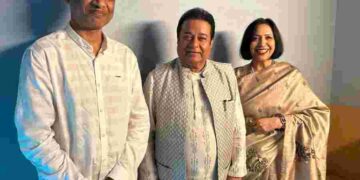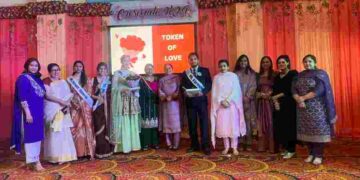ROPAR DIVISION REMAINS SECOND IN COLLECTION, PATIALA IN GROWTH RATE
Chandigarh, December 25
Maintaining its top position in the collection of Goods and Services Tax (GST), the Ludhiana division leads the state in both collection and growth rate during the first eight months of the current fiscal year. The division registered net GST revenue of Rs. 3354 Crore till November end and a growth rate of 23.17 percent as compared to the same period of FY 2021-22.
Disclosing this here today, the official spokesperson of the Taxation department said that Ludhiana-2 collected the highest GST revenue of Rs 1018 crore while Ludhiana- 5 led the division with a growth of 48.18 percent amongst the 6 districts of Ludhiana division namely Ludhiana-1, Ludhiana-2, Ludhiana-3, Ludhiana-4, Ludhiana-5 and Fatehgarh Sahib falling under Ludhiana Division.
Revealing the growth rate of total GST revenue recorded by the various divisions of the Taxation department up to the month of November as compared to the same period of the previous financial year, the Spokesperson said that Patiala division remained on the second position with a growth rate of 25.99 percent, whereas, Amritsar, Jalandhar, Ferozepur, Faridkot and Ropar divisions registered growth rates of 19.42, 19.39, 17.11, 9.45 and 2.49 percent respectively.
He further added that in net GST revenue collection Ropar Division scored the second position with net GST revenue of 2002 crore, whereas net GST collection by Jalandhar, Amritsar, Faridkot, Patiala and Ferozepur divisions were 1420.33 crore, 885.71 Crore, 872.43 Crore, 700.42 Crore and 364.3 crore respectively.
The Spokesperson said that the performance of the various divisions of the Taxation department and districts falling under these divisions was reviewed by the Punjab Finance, Excise and Taxation Minister Advocate Hapal Singh Cheema during a monthly review meeting of the department. He said that during the meeting the Minister appreciated the officials of performing districts and divisions besides advising the district-level officers to learn from the experiences and professional qualities of each other to further improve their performance. He also asked them to adopt a courteous approach towards taxpayers and come out with innovative measures to convince the taxpayers that the department was working to facilitate them.







